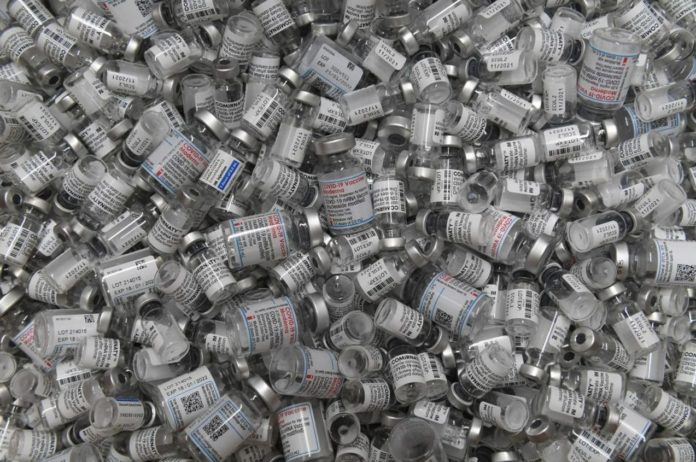As the omicron and delta variants rise COVID positive rates across the country, doctors are recommending vaccines and booster shots.
However, many people are still concerned about the safety of repeated injections to prevent a severe infection from developing.
Despite the fact that COVID-19 vaccines are extremely efficient at reducing the severity of the virus’s symptoms, the effectiveness of the vaccine diminishes over time and that’s why boosters are being recommended.
Some may wonder if the boosters are permanent in light of a recent Israeli study extolling the possible benefits of a fourth injection. Some people wonder if getting too much vaccination can be harmful.
In an interview with Nexstar’s WKRN, an infectious disease expert from Vanderbilt University Medical Center was questioned if it’s possible to overprotect oneself and unintentionally cause more harm than good.
“No, is the short answer,” replied Dr. Amia Ahonkhai. “There’s an entirely separate pathology when your immune system does not know how to turn off when there is something stimulating it. And in the case of autoimmune diseases, that thing stimulating it is something normal in your own body – we can’t create that scenario, from vaccination, with small doses of antigens.”
According to CDC, “your risk of serious side effects does not increase if you get extra doses of a vaccine.”
Dr. Dorry Segev, a Johns Hopkins University transplant physician who analyzes transplant patient responses, recently told the New York Times that his research shows that further vaccination doses “should be safe and can work in some cases.” However, he warned that further doses could pose some dangers, such as overstimulating the immune system, if given too frequently.
In his message, Dr. Ahonkhai encourages anyone who have questions to reach out to medical professionals, and he reminds his colleagues to be patient with those who are still hesitant to roll up their sleeves.
“Information is changing,” Dr. Ahonkhai added. “And I think taking some responsibility on the side of the public health community, that we need to be really intentional about how we explain this information because there can be so much lost in trust if that’s not done effectively.”
According to some researchers, some immunocompromised individuals may never develop an immune system response, regardless of how many shots they receive. This is dependent on their condition and the medications they are taking at the time.
“If three doses didn’t work at all, we probably should consider something different for that fourth dose,” Dr. Segev added.
One option, he added, is to see if it’s possible to reduce or discontinue immune-suppressing medicine before administering higher dosages.
According to Shane Crotty, a professor at the La Jolla Institute for Immunology’s Center for Infectious Disease and Vaccine Research, receiving further doses too quickly could be detrimental.
He said that this is due to the fact that the immune system’s long-term memory appears to operate better if it has time to rest between two vaccinations, and that the body requires months to refine its antibody-making process following initial vaccination.
According to Dr. Lianne S. Gensler, a rheumatologist at the University of California, San Francisco, monoclonal antibodies could be a viable option to additional shots in protecting patients.
Over the past two weeks, the number of new COVID-19 cases in the United States has more than tripled, according to the reports. There have been delays at hospitals, airports, and schools all around the country because of the influx of people.
Image Credit: Getty
You were reading: COVID vaccines: how much is too much and are there health risks?
